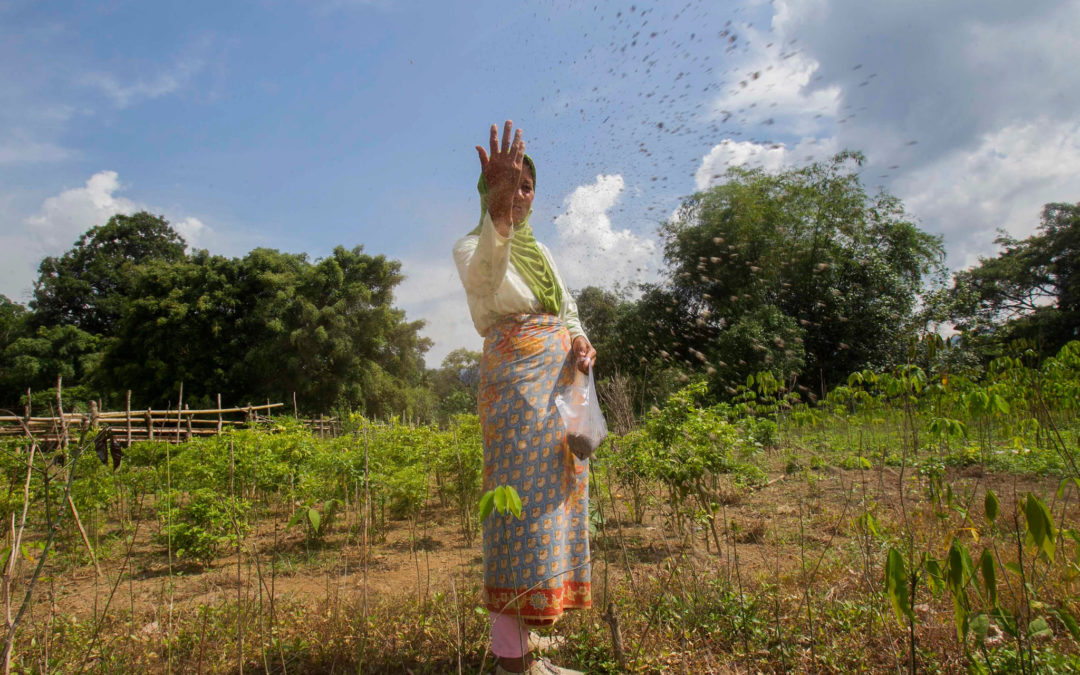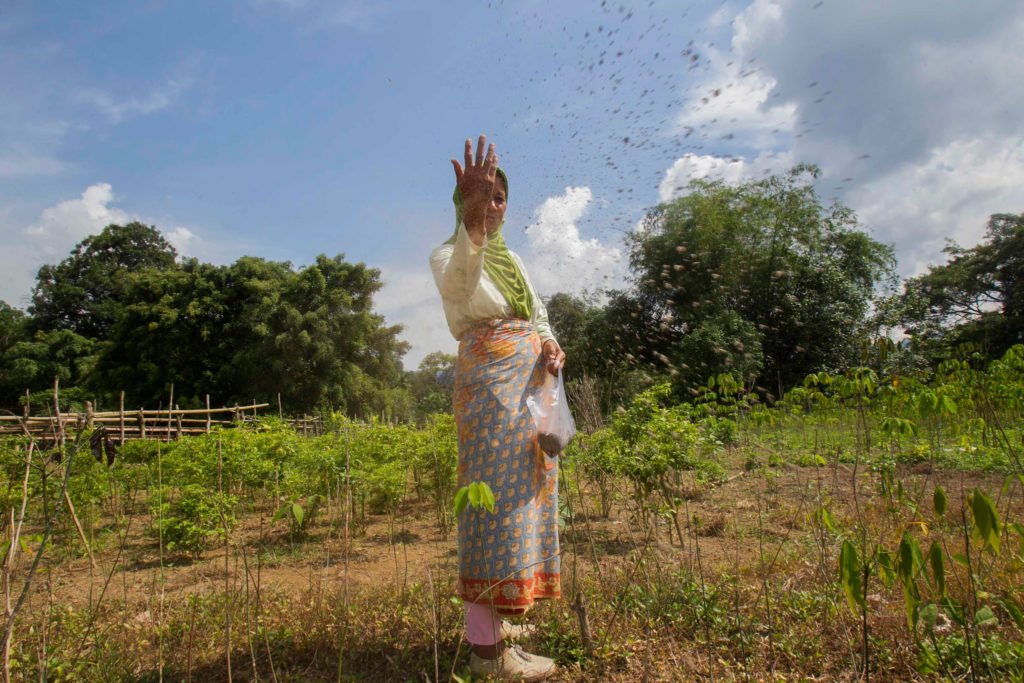Accessible agricultural learning through a farmer’s forum
This blog is a submission to the Community of Practice on Data-Driven Agronomy’s blog competition on digital extension—an opportunity for those working in the digital extension in agriculture field to share their experiences with their technologies, business models, key challenges, and major bottlenecks, as well as how they solved such challenges, when creating and implementing innovative solutions.
Dr. Epsi Euriga is a faculty staff at the Polytechnic Agricultural Development Yoma (Polbangtan Yoma, Indonesia) and teaches students on information technology on agricultural extension. He gave them the task of making an Android app on agricultural extension. Two of the students, Fathu and Farida, have developed apps, although they have not yet been published on the Google Play store. Dr. Epsi Euriga supported them to develop this program, and it has been approved by the program’s director.
Their app is named Juru Tani, meaning the light or expert of farmer. It is an application that is used to facilitate communication between farmers, extension workers, and experts. This application is motivated by the small number of agricultural extension workers in Indonesia. Extension workers have important roles as mediators, facilitators, and information communicators—roles that are important in order for farmers to continue successful farming. Additionally, there are many people who want to develop agriculture but have not been embraced by extension workers.
Juru Tani apps provides services so that farmers and the community can get access to information and consulting services by sending messages directly to the extension workers and experts.
The target market of the Juru Tani app is young people who are engaged in agriculture. End users of this application can be reached through social media platforms such as Instagram, which is widely used by young people. Additionally, the app will be available on the Google Play store.
The Juru Tani app has been designed for young farmers, as this new generation will soon replace the position of the elderly farmers. At present many farmers come from communities where basic agricultural knowledge is not available to them. However, they are eager to learn; Juru Tani works as a forum for those who want to learn, facilitates access to agricultural information and knowledge and allows users to ask questions and consult with counselors and experts.
The business model of this agricultural startup is to develop paid consulting for premium services. The premium services would be marketed via telephone and advertised in farm shops.
The expected impact of the Juru Tani apps is to make agricultural learning more accessible outside of a formal education setting by connecting interested individuals to experts, firsthand.
This application provides an innovation offer for its users in the form of an opportunity to consult directly with experts.
What are the biggest challenges you have faced? How did you overcome them?
The biggest challenge that the Juru Tani app faces is activating experts and extension agents to respond quickly to farmers’ queries. We want to minimize the number of consultations that receive a delayed response (such as one or two days), as this makes the app less convenient for the user.
The way to overcome this is by scoring experts on their response times–rapid responses receiving high scores. As an incentive, each week or a month, the expert with the highest score is could be awarded.
An additional challenge for Juru Tani Apps is data. Juru Tani already have menu to involve extension agent, expert on academic but it will be better to give farmer more information. We plan to do further development to add more complete features to this application that will synchronize all data from other data based such as from Meteorological, Climatological, and Geophysical Agency (BMKG) Indonesia. So with a single click on the commodity and location of the farmer’s land, they will be able to see the next few months climate forecasts, suitable commodities, and possible phases of plant pest organisms that possible to occur. The data becomes a reference in conducting cultivation to reduce or avoid things that are not desired by farmers. This step is an anticipatory step that can be done by farmers using data as a source of information to determine decisions in cultivation. So everything that farmers do is based on data.
In your opinion, what is the main opportunity for digital extension services? What recommendations would you make in order to realize this opportunity?
The main opportunities for the Juru Tani apps are from farm shops, data sales, and premium/paid consultations. We aim to realize these opportunities by establishing a farm shop partner and seeking experts and extension workers.
Lastly, if the Juru Tani app is successfully applied in Indonesia, then we can expand the application in various languages. We can imagine how all farmers, extension workers, and experts unite in one application aimed at achieving the SDGs.
***
Photo: Tri Saputro / CIFOR. A Lubuk Beringin farmer, Rosminah, spreads organic fertilizer to her rubber seedling on her farm at Lubuk Beringin village, Bungo District, Jambi Province, Indonesia.
Click here to view the full list of articles competing in the digital extension services blog competition.
February 4, 2020
Dr. Epsi Euriga
Faculty staff
Polbangtan Yoma, Ministry of Agriculture Indonesia
Latest news







I’ve been catching up on your blog and your Agriculture blogs are really inspiring.
Jurutani app is best. I support it